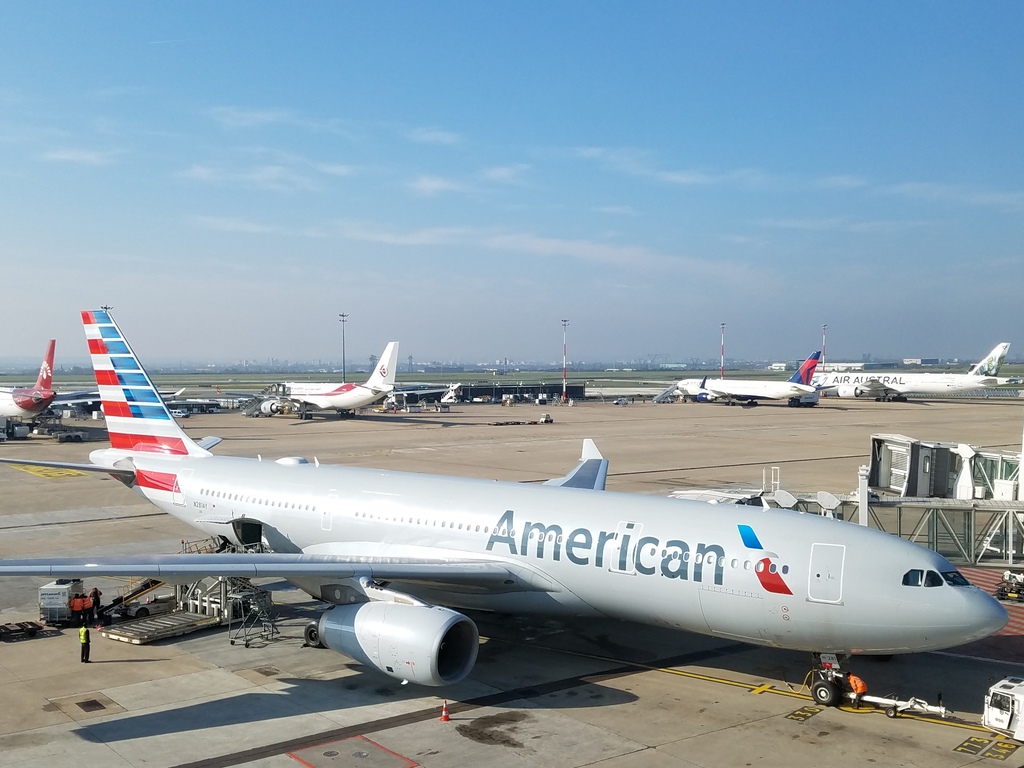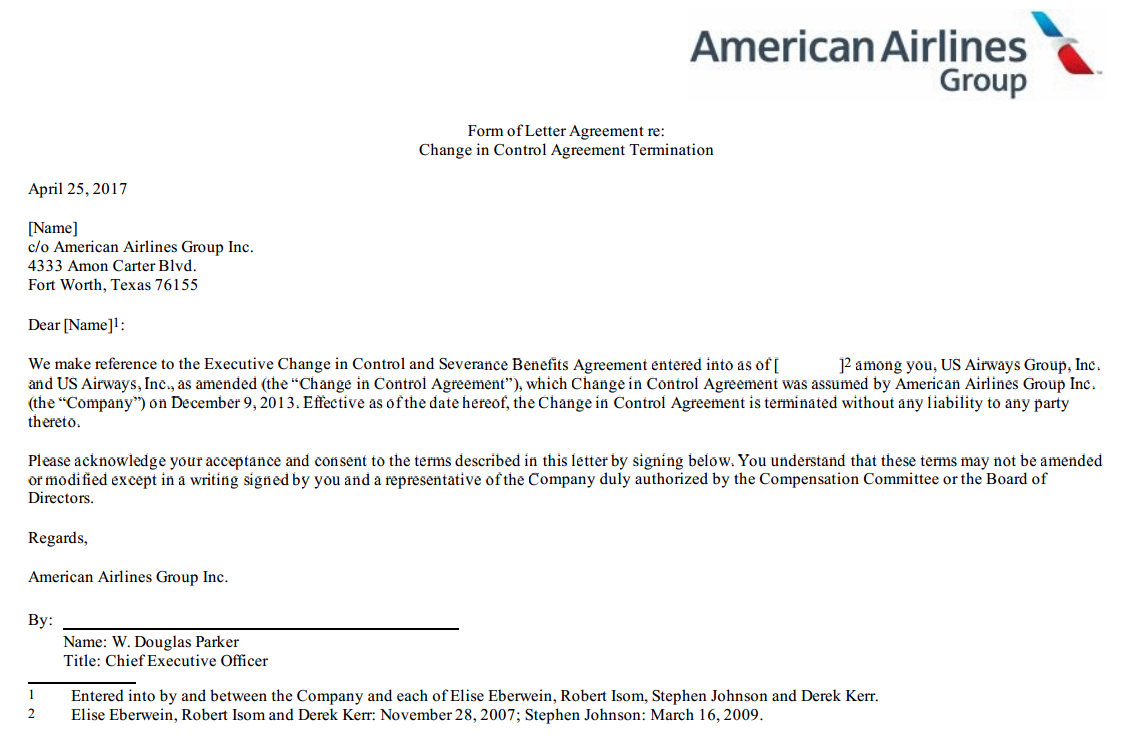Several top American Airlines executives — President Robert Isom, Executive Vice President – People and Communications Elise Eberwein, Executive Vice President of Corporate Affairs Stephen Johnson, and Chief Financial Officer Derek Kerr — gave up their rights to severance if fired or if American Airlines is acquired.
Each had legacy US Airways agreements created between late 2007 and early 2009.

Of course, American Airlines isn’t going to be acquired by another airline. One could imagine an acquisition scenario that doesn’t involve another carrier. Being fired is more likely, though each is a talented executive heads sometimes roll to appease the public or investors for a perceived misdeed.
[N]one of the Company’s executive officers are now contractually entitled to any cash severance or continued health benefits upon any termination, nor is the Company contractually obligated to provide a gross-up to cover any excise taxes incurred by any executive officer under Section 4999 of the Internal Revenue Code of 1986, as amended.
The lack of a contractual agreement doesn’t mean there wouldn’t be any severance actually paid of course.
This of course makes executives more accountable to current results without personal guarantees. And it will become a management talking point for the company’s annual meeting. In fact it’s part of their proxy materials.
On the other hand American Airlines probably should be going in the other direction though, with former President Scott Kirby becoming the President of United Airlines and bringing Senior Vice President Andrew Nocella with him they might want to start considering non-compete agreements and severance agreements which prevent their top executives from taking their knowledge and experience over to competitors.
Here’s the form of the letter each executive agreed to:




@ Gary – I didn’t realize this, but its common practice in the Airline industry to not have non-compete clauses. The reason is pretty simple – its such a specialized industry where the skills don’t translate particularly well to other industries that they feel like its handicapping anyone who would leave to severely. Hence a sort of consensus that none of the airlines should have one. That’s at least the line I have heard in the past….
Will this extend to the American AAdvantage executives?
Pure window dressing. There are umpteen ways an executive can be compensated upon leaving. For example, settlement of potential age discrimination claims. You can’t waive those.
Having no employment agreement for top execs is a failure of the board’s obligations. IMO Obviously, AA disagrees.
Even mid-level managers at most companies must sign (often quite onerous) non-compete clauses. Many employees are forced to sign these even in very specialized industries. Scott Kirby’s >$14M payout as he walked across the street to begin trying to destroy American as president of United is simply immoral — no matter what attempted justification anyone tries to spin for it. This is a 1%-er scenario that demotivates entire company workforces.
So when do they begin to drain the swamp?
@ATLbro , I guess they don’t see it the other way, c.f. Oscar Munoz